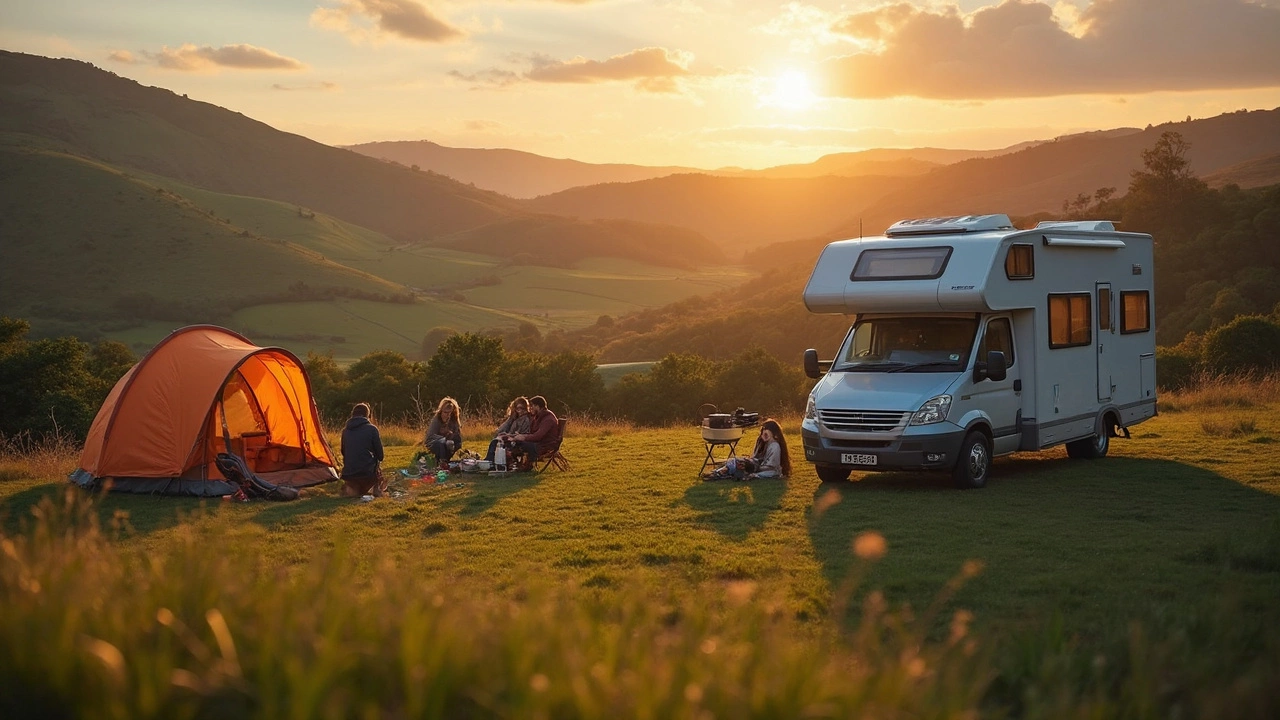Tent Camping Made Simple: Your Go‑To Guide for the UK
If you love the feeling of a fresh breeze and a night under the stars, tent camping is the quickest way to satisfy that itch. Whether you’re pulling up with a motorhome or heading out on foot, the basics stay the same: pick a good spot, bring the right gear, and stay safe.
How to Pick the Perfect Tent Camping Spot
Start by checking the official campsite list on your favourite UK national park website. Many parks let you camp for free in designated wild‑camping zones, but you still need a permit or at least a quick phone call. Look for flat ground, good drainage, and natural windbreaks like trees or a low hill. If you’re near the coast, beach camping can be magical, but remember local parking rules – some beaches charge a small fee or forbid overnight stays.
Stealth camping is another option, especially if you’re on a tight budget. In Scotland you can pitch almost anywhere thanks to the right‑to‑roam law, but in England and Wales the rules are stricter. A quick read of the “Is Stealth Camping Legal in the UK?” article will save you from a nasty fine.
When you’re near a forest, check if the site allows car camping. Some forests let you sleep in your vehicle, which can be handy if the night gets chilly. Just make sure the forest authority permits it – the “Can You Sleep in Your Car at Forest Campsites?” post has the details.
Essential Gear and Safety Tips
A good three‑season tent is the backbone of any trip. Look for a waterproof fly, sturdy poles, and a simple setup – you’ll thank yourself when you hear a sudden gust. Pair it with a compact sleeping bag rated for 5 °C, a sleeping pad, and a lightweight headlamp. If you’re travelling with a motorhome, a small 12‑volt TV can make evenings cozier – see the guide on running a 12‑volt TV off a battery for wiring tips.
Never skip a fire safety check. Keep a small bucket of water or a fire extinguisher within arm’s reach, especially on beach sites where sand can hide hot embers. The “Rule of Three Camping” article breaks down how many days of food, water, and fire‑starting material you should carry.
Food storage matters too. In areas with bears or wildlife, store everything in a locked box or hang it from a tree using a proper bear‑bag method. Even in the UK you’ll want to protect your snacks from curious foxes.
Finally, pack a basic first‑aid kit, a map, and a charged phone. Knowing where the nearest ranger station is can be a lifesaver if you get lost or need help.
With these steps, you’ll feel confident setting up camp whether you’re on a quiet woodland clearing, a rugged Scottish hillside, or a sunny beach. Remember, the best tent camping experiences come from a mix of good planning, solid gear, and a willingness to adapt to the local rules. Happy camping!
-
 VIEW POST
VIEW POSTIs Tent Camping Cheaper than RV? Here's What You Need to Know
Apr, 4 2025|0 CommentsExploring whether tent camping is more cost-effective than RV camping can be a little tricky. We break down the various factors such as initial expenses, campsite fees, and ongoing costs to help families make an informed decision. Learn about the hidden costs and discover helpful tips to make camping more affordable. Get ready to weigh your options and possibly save some cash on your next outdoor adventure.